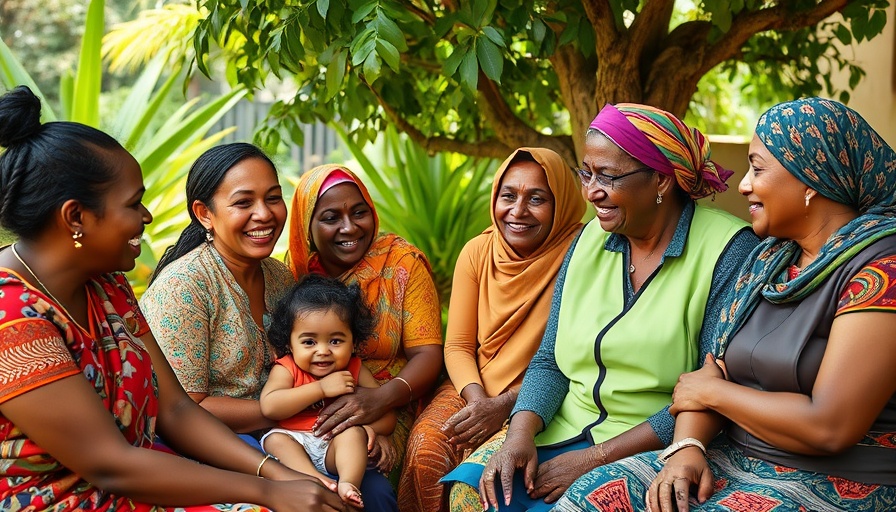
Understanding the Impact of Climate Change on Women's Health
Climate change is not just an environmental issue; it fundamentally reshapes lives, especially those of vulnerable populations. In Bangladesh, an alarming trend has emerged as this South Asian nation grapples with increasingly severe floods impacting the health and well-being of women, particularly during their reproductive years. With over 670,000 women of reproductive age living in the Sunamganj district, the urgency for targeted intervention to mitigate these challenges has never been higher.
UNFPA’s Role in Empowerment and Preparedness
The UN reproductive health agency (UNFPA) takes a proactive approach toward this crisis by training women on how to navigate severe weather events. Consider the story of Shakila Akhter, who was eight months pregnant when the last devastating floods hit. Thanks to the training she received, Shakila felt empowered to make informed decisions—to prepare adequately for her family’s safety and to utilize family planning tools that had previously been unknown to her. This training not only provided immediate safety tips but also addressed long-term family planning, enabling women to control when they would choose to grow their families amidst environmental uncertainties.
The Danger of Climate-Induced Disruptions
Severe floods in Bangladesh disrupt daily life, displace families, and curtail access to essential services like healthcare. As Shakila mentions, the climate has visibly altered over the past two decades, manifesting not just in increased flood frequency but also extending the flood season and shortening winters. Such changes pose significant threats to women’s reproductive health, particularly in rural communities where access to healthcare is already limited. This reality presents a stark reminder of the intersectionality of climate, gender, and health.
A Call to Action for Global Awareness
Now is the time for a concerted effort to raise awareness about the ramifications of climate change on women's healthcare globally. Policymakers, researchers, and business leaders must recognize that a stable environment is foundational for health, economic stability, and social progress. The steps taken can significantly enrich not only women's lives but also contribute to a stronger societal fabric resistant to the increasingly frequent adversities caused by climate change.
 Add Row
Add Row  Add
Add 


Write A Comment